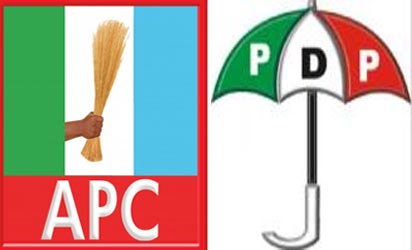The race for who becomes governor of Rivers state is heating up by the day. It has not only been a case of who emerges the governor of the state but which ethnic group will produce the number one citizen of the state which is highly heterogeneous.
In 1999, a minority Sir Peter Odili from Ndoni in Ogba/Egbema/Ndoni local government area was privileged to be governor of the state. Having completed his two terms of eight years, he handed over to Sir Celestine Omehia from the Ikwerre axis as governor. Omehia’s tenure in office was short-lived with the Supreme Court judgment that brought in Rotimi Amaechi as governor of the state. By 2015 power continued to remain in the Ikwerre ethnic nationality with the emergence of Nyesom Wike as governor of the state.
Almost four years since the emergence of Wike as governor, there is a strong clamour that it will be unfair for the Ikwerres to continue to govern the state for another four years.
This position is shared by the majority of Rivers people including Ikwerres that crave justice and fair play in the state. Amaechi despite his seeming opposition to an Ogoni candidate especially the aspiration of his former ally and Secretary to the Rivers State Government Sen. Magnus Abe, has also championed this position of power rotating to another ethnic stock outside the Ikwerres.
But as the clamour for which zone should be given the position of governor continues to soar, the question is which zone should be given the ticket or do we just give it to any zone without recourse to the competence, accessibility and acceptability of the person that will be elected as governor of the state?
One particular ethnic group that has sacrificed so much for not only the state but the Niger Delta in general, is the Ogoni ethnic stock. From the early 90s through the advent of democracy in 1999, the Ogoni people had suffered so much oppression and deprivation that has never been experienced by any ethnic group in the Niger Delta region. The climax of the oppression of the Ogonis was the hanging of their son and renowned playwright Ken Saro Wiwa. This gruesome killing which received worldwide condemnation made those that went for the 1995 Constituent Assembly to among other issues insert the 13 per cent derivation policy so as to address and assuage the issues of economic marginalisation that was one of the hall marks of the Saro Wiwa led campaigns.
More than 20 years after the sacrifice of Ken Saro Wiwa and others, the clamour today is that power should move to the Ogoni axis especially considering the fact that they have a competent person in Sen. Magnus Abe who has despite conspiracies in some quarters shown interest to occupy the Government House Port Harcourt.
Without any intent to diminish the office of the state governor to ethnic considerations, I wish to state clearly that what is needed today in the state is competent leadership and if a son of the Ogoni extraction proves or is seen to be capable for the position.
This is not just a case of political or ethnic sentiment but rationality and understanding. Some persons have talked about the upland – riverine dichotomy but the issue today is that there is nothing like such dichotomy because if it is brought into focus then the riverine which is minority in the state will not see the seat of power in the foreseeable future. What we are looking at today is the case of ethnic groups and since the Ogonis have sacrificed so much for the state and the Niger Delta region, we owe it as an obligation as true and patriotic Rivers people to support an Ogoni son for the post.
– Comrade Nwokoma wrote from Abuja.
Read More at: https://leadership.ng/2018/07/14/rivers-guber-and-the-ogoni-question/

